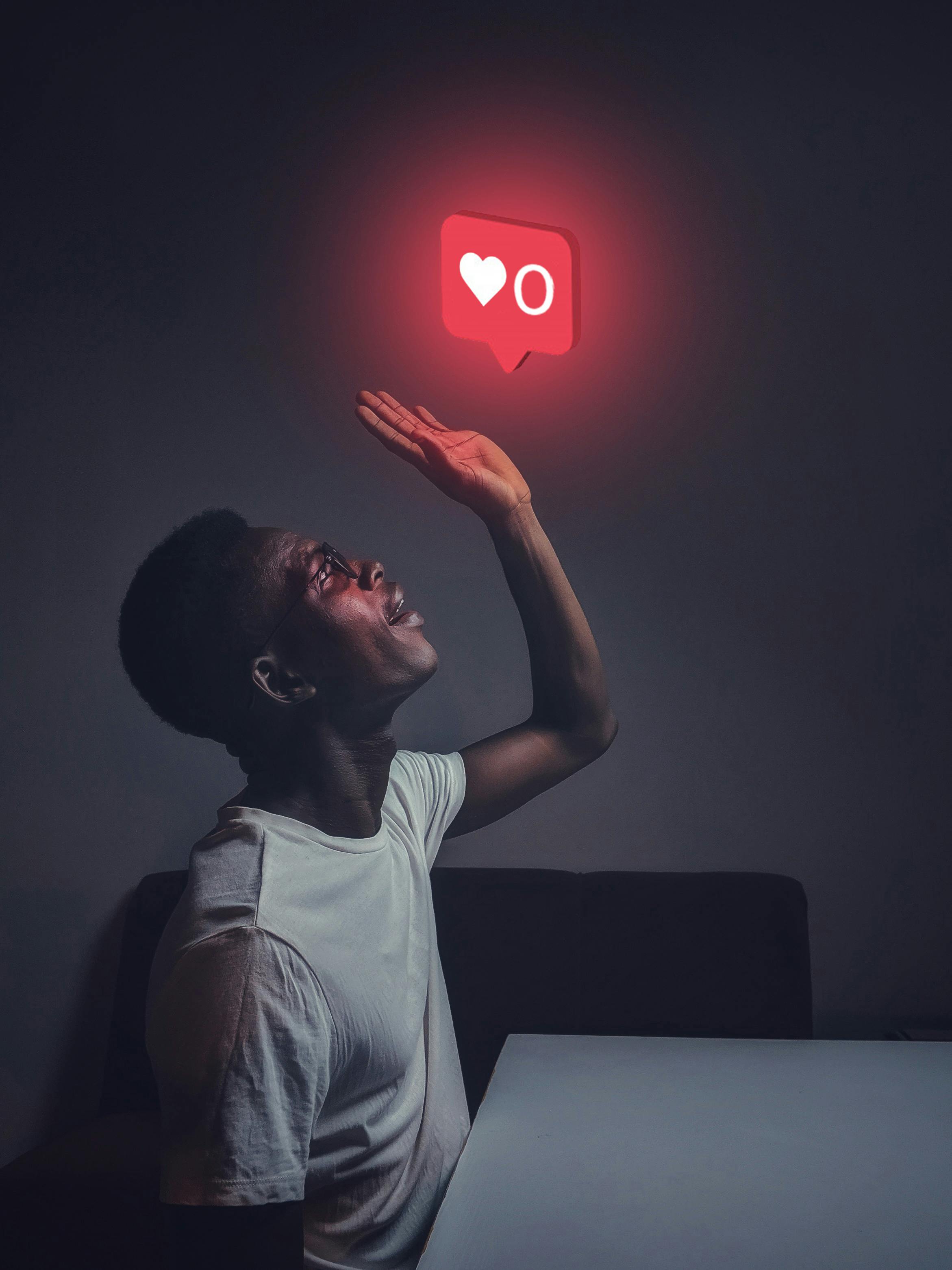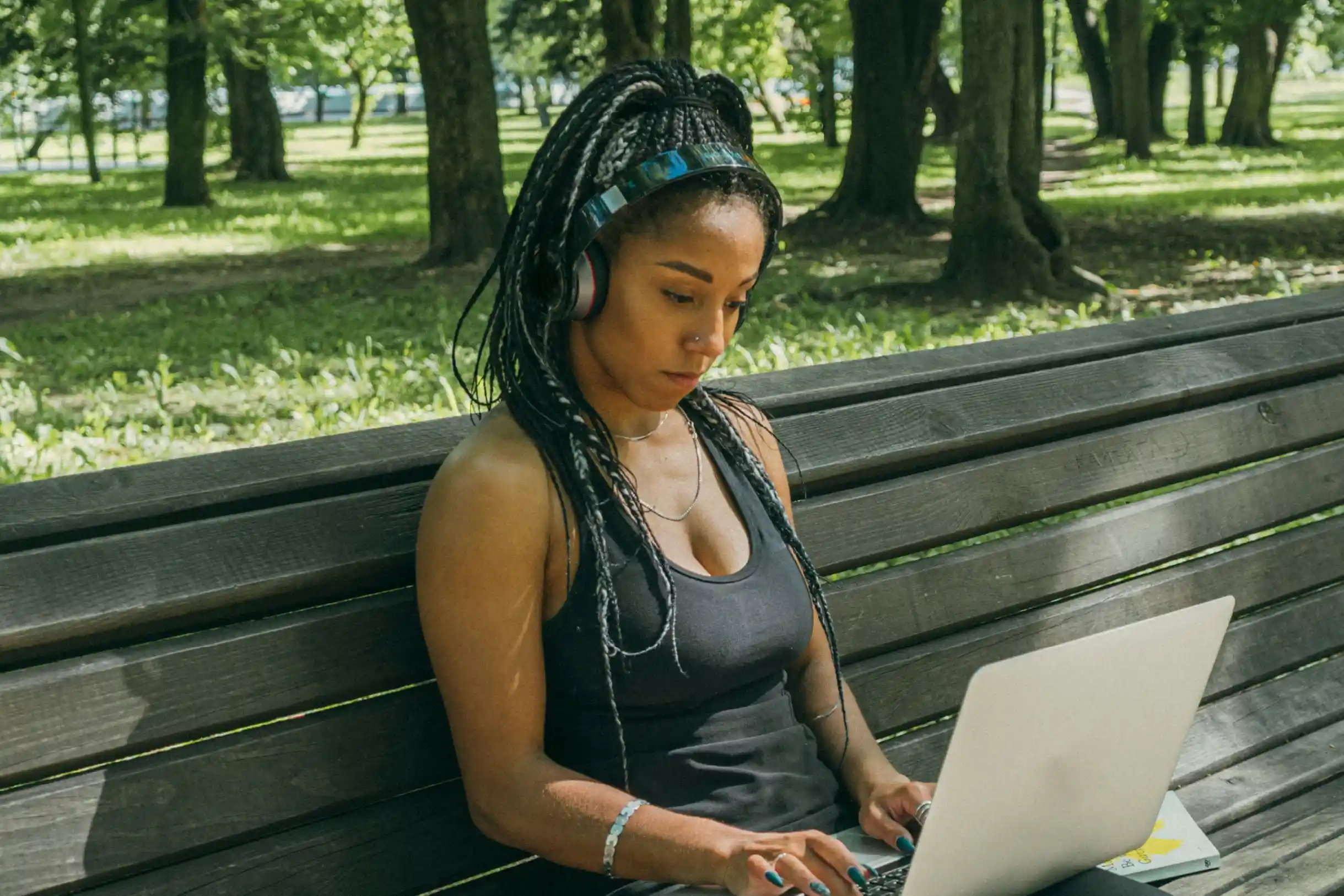What is an AI Influencer? Everything You Should Know
Photo by This Is Engineering on Pexels
In the ever-evolving digital world, a new breed of influencers has emerged, revolutionizing digital marketing strategies and captivating audiences. These are not your typical social media influencers; they are AI influencers—virtual personalities created using advanced AI technology. In this blog, we will explore everything you should know about AI influencers, their impact on influencer marketing, and what the future holds for this innovative marketing tool.

What is an AI Influencer?

Photo by Oladimeji Ajegbile on pexels
AI influencers, also known as virtual influencers, are digital characters created using artificial intelligence (AI) and computer-generated imagery (CGI). Unlike human influencers, AI influencers are not real people but rather meticulously crafted virtual personas designed to engage with audiences on various social media platforms. These digital characters are often indistinguishable from real people in photos and videos, thanks to advanced CGI technology.
The first AI influencer, such as Lil Miquela, Imma, and Lu of Magalu, have gained large followings and collaborated with renowned brands, setting the stage for the rise of virtual personalities in marketing.
The primary goal of AI influencers is to communicate effectively with followers and promote brands or products, much like their human counterparts. They are programmed to interact with users, respond to comments, and even take part in live events, providing a seamless and immersive experience.
The Evolution of Influencer Marketing
Influencer marketing has traditionally relied on human influencers—real individuals with significant social media followings who can sway the purchasing decisions of their audience. This strategy has been effective for years, with social media influencers becoming pivotal in shaping consumer behavior and brand perception. However, the rise of digital marketing and advancements in AI technology have introduced a new player into the mix: AI influencers.
The world’s first digital supermodel, Lil Miquela, set the stage for this new trend. Created by the startup Brud, Lil Miquela quickly gained a massive following on Instagram, blurring the lines between reality and virtual existence. Following her success, other AI influencers like the Japanese virtual model Imma and virtual model named Neon have emerged, demonstrating the potential of AI-generated content in influencer marketing. This marks the beginning of AI influencer marketing, highlighting the growing trend and its implications.
How AI Influencers Work

Photo by Google DeepMind on pexels
The creation and operation of AI influencers involve a combination of AI and CGI technology. Advanced machine learning algorithms and natural language processing (NLP) enable these virtual influencers to generate realistic content and interact with their audience in a lifelike manner.
Creation Process:
The creation of an AI influencer starts with concept design, where AI creators use computer graphics and motion capture technology to develop a lifelike digital character. This process involves detailed modeling, texturing, and animation to ensure the character looks and moves like a real person.
Content Generation:
AI influencers generate content using AI tools that analyze trends, audience preferences, and engagement metrics. These tools help create posts, stories, and videos that resonate with the target audience. NLP allows AI influencers to engage in conversations, respond to comments, and even participate in live interactions, making them appear more authentic and relatable.
Continuous Learning:
AI influencers are constantly learning and evolving. Advanced machine learning algorithms enable them to adapt to new trends, refine their interactions, and improve their engagement strategies over time. This continuous learning process ensures that AI influencers remain relevant and effective in their roles.
Benefits of AI Influencers
AI influencers offer several advantages over human influencers, making them an attractive option for brands looking to enhance their digital marketing strategies.
- Consistency and Control: Unlike human influencers, AI influencers provide consistency in branding and messaging. Brands have complete control over the content and behavior of AI influencers, ensuring that they always align with the brand's values and objectives.
- Scalability: AI influencers can be scaled to engage with a global audience without the limitations of time zones, language barriers, or geographical constraints. This scalability allows brands to reach a broader audience and maximize their marketing efforts.
- Cost-Effectiveness: While the initial creation of an AI influencer may involve significant investment, the long-term costs are often lower than those associated with human influencers. AI influencers do not require salaries, benefits, or travel expenses, making them a cost-effective marketing tool.
- Novelty and Innovation: AI influencers offer a novel and innovative approach to marketing. Their unique blend of technology and creativity can capture the attention of audiences and generate buzz, helping brands stand out in a crowded digital marketplace.
Popular AI Influencers
Several AI influencers have gained significant popularity, becoming digital superstars in their own right. These virtual personalities are at the forefront of AI-generated content and influencer marketing.
- Lil Miquela: A Japanese virtual model created by the company: Often cited as the world's first digital supermodel, Lil Miquela has amassed millions of followers on Instagram. She collaborates with major fashion brands and participates in high-profile marketing campaigns, showcasing the potential of AI influencers in the fashion industry.
- Neon: Developed by Samsung's STAR Labs, Neon is a virtual model designed to interact with users in real-time. Unlike other AI influencers, Neon's primary focus is on providing personalized and engaging interactions, demonstrating the potential of AI technology in customer service and entertainment.
These AI influencers represent the cutting edge of digital marketing, offering new ways for brands to connect with their audiences.
AI Influencers in Action

Photo by Leila Abboud on Pexels
AI influencers are increasingly being used by brands for marketing campaigns, particularly in the fashion and luxury sectors, as part of their influencer marketing strategies. These virtual ambassadors can engage with audiences across various social media channels, creating a seamless and immersive brand experience.
- Fashion Brands: Fashion brands have been quick to adopt AI influencers for their marketing campaigns. For example, Lil Miquela has worked with major fashion houses like Prada and Calvin Klein, modeling their latest collections and appearing in advertising campaigns. These collaborations demonstrate the potential of AI influencers to drive brand awareness and engagement in the fashion industry.
- Luxury Brands: Luxury brands are also leveraging AI influencers to reach a younger, tech-savvy audience. For instance, the virtual influencer Shudu , created by the digital artist Cameron-James Wilson, has modeled for high-end brands like Balmain and Fenty Beauty. These partnerships highlight the growing acceptance of AI influencers in the luxury market.
- Social Media Engagement: AI influencers excel at engaging audiences on social media platforms. They can post regular updates, respond to comments, and participate in live events, creating a dynamic and interactive presence. This level of engagement helps brands build stronger connections with their audience and drive meaningful interactions.
AI Influencers vs. Human Influencers

Photo by Antoni Shkraba on Pexels
While AI influencers offer many benefits, they also differ significantly from human influencers. Brands must consider these differences when deciding which type of influencer best suits their marketing strategies.
- Authenticity: Human influencers bring authenticity and personal experiences to their content, which can resonate deeply with audiences. AI influencers, on the other hand, offer controlled and predictable interactions, which may lack the genuine connection that human influencers provide.
- Reliability: AI influencers are immune to the unpredictability of human behavior. They do not require breaks, do not engage in scandals, and always adhere to brand guidelines. This reliability can be a significant advantage for brands looking to maintain a consistent image.
- Flexibility: Human influencers can adapt their content and approach based on real-time feedback and personal insights. AI influencers rely on programmed responses and algorithms, which may limit their flexibility in certain situations.
- Ethical Considerations: The use of AI influencers raises ethical questions about transparency and consumer trust. Brands must ensure that their audience is aware that they are interacting with a virtual persona and not a real person to maintain ethical standards in their marketing practices.

The Future of AI Influencers
As AI technology continues to advance, the future of AI influencers looks promising. We can expect to see even more sophisticated and lifelike virtual influencers, capable of engaging with audiences on a deeper level.
- Enhanced Realism: Advances in AI and CGI technology will enable the creation of even more realistic and lifelike AI influencers. These virtual characters will be able to mimic human expressions, movements, and interactions with greater accuracy, making them nearly indistinguishable from real people.
- Increased Personalization: AI influencers will become more personalized and capable of providing tailored interactions based on individual user preferences. This increased personalization will enhance user engagement and create more meaningful connections with audiences.
- Integration with AI Tools: AI influencers will integrate with a wider range of AI tools and technologies, such as augmented reality (AR) and virtual reality (VR). This integration will create immersive and interactive experiences, further blurring the lines between the digital and physical worlds.
- Expansion into New Industries: While fashion and luxury brands have been early adopters of AI influencers, we can expect to see their use expand into new industries such as healthcare, education, and entertainment. AI influencers will play a pivotal role in shaping the future of influencer marketing across various sectors.
Creating Your Own AI Influencers
Creating an AI influencer involves several steps and tools. Brands interested in developing their own AI influencers must consider the technical and creative aspects of the process.
- Concept Design: The first step in creating an AI influencer is concept design. This involves developing a unique and engaging character that aligns with the brand's identity and values. Designers use computer graphics and motion capture technology to create a lifelike digital model.
- Content Development: Once the character is designed, the next step is content development. This involves creating posts, stories, and videos that resonate with the target audience. AI tools analyze trends, audience preferences, and engagement metrics to generate relevant and appealing content.
- Training and Learning: AI influencers need to be trained to interact with users and respond to comments. Advanced machine learning algorithms enable these virtual influencers to learn and evolve over time, improving their interactions and engagement strategies.
- Collaboration with Tech Giants: Brands often collaborate with established tech giants and digital marketing experts to create and manage AI influencers. These partnerships ensure that the AI influencer is developed using the latest technologies and industry best practices.
Ethical Considerations and Challenges
The rise of AI influencers also brings ethical considerations and challenges that brands must navigate carefully.
- Transparency: It is crucial for brands to be transparent about the nature of AI influencers. Audiences should be aware that they are interacting with a virtual persona and not a real person. This transparency helps build trust and credibility.
- Authenticity: While AI influencers can provide controlled and consistent interactions, they may lack the authenticity and genuine connection that human influencers offer. Brands must balance the use of AI influencers with authentic, relatable content to maintain audience engagement.
- Consumer Trust: Maintaining consumer trust is essential when using AI influencers. Brands must ensure that their use of AI technology aligns with ethical marketing practices and does not deceive or mislead their audience.
- Regulation: The use of AI influencers is still a relatively new phenomenon, and regulatory frameworks are still evolving. Brands must stay informed about emerging regulations and ensure their practices comply with legal and ethical standards.
AI influencers are reshaping the digital marketing landscape, offering innovative solutions and opportunities for brands. Understanding what AI influencers are, how they work, and their potential impact is crucial for anyone involved in influencer marketing. As AI technology continues to evolve, AI influencers will undoubtedly play an increasingly significant role in the digital world, revolutionizing how brands connect with their target audiences.
We hope this blog has provided valuable insights into the world of AI influencers. Share your thoughts and experiences with AI influencers in the comments below, and stay tuned for more updates on digital marketing and AI technology by subscribing to our blog.




